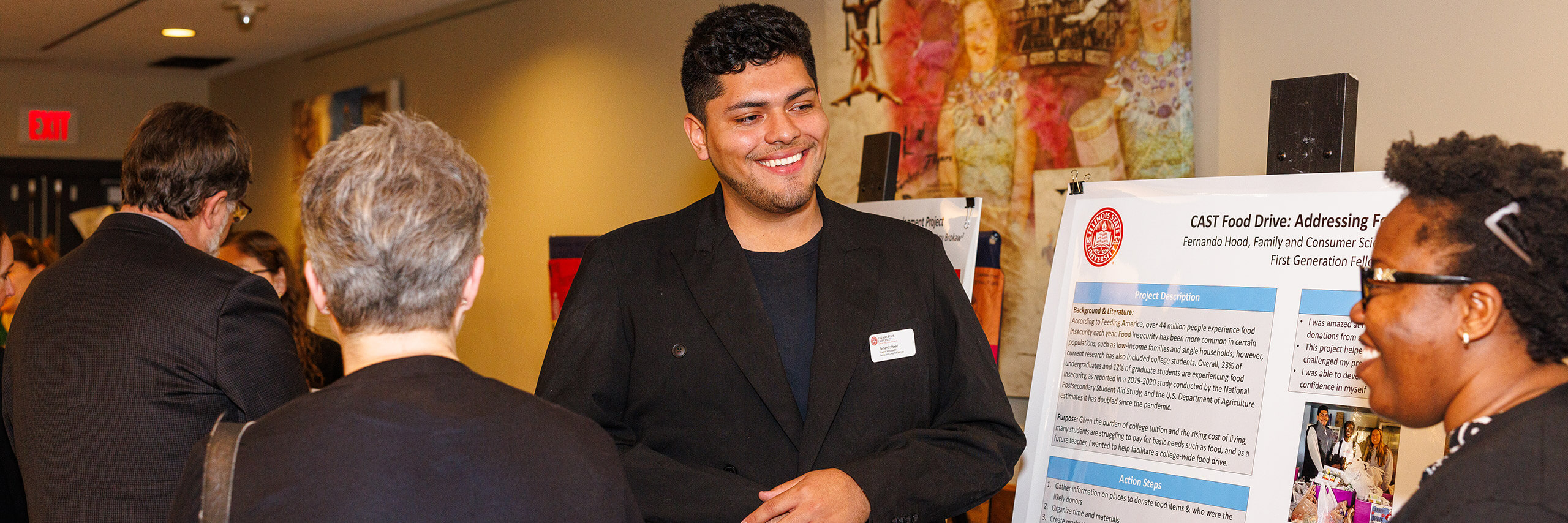
Faculty and Staff
The Center for Civic Engagement supports faculty and staff by providing resources, consultation, and networking opportunities to enhance Illinois State's core value of civic engagement.
Integrating Civic Engagement
-
Types of Civic Engagement
Discover the ways Illinois State practices civic engagement and some examples from actual projects.
-
Civic Engagement Fellowship
Find the funding opportunities to those who are passionate about making a positive impact in their communities.
-
Internships with Community-Based Organizations
Interning with a nonprofit organization can significantly enhance a student's learning experience.
-
National Organizations
Discover a list of national organizations that you can support to make a positive social impact.
-
Join the Listserv
The Center is proud to host a civic engagement listserv for Illinois State University faculty and staff. The listserv can be used to share a variety of civic engagement opportunities.
The Center for Civic Engagement Resouces
The Center for Civic Engagement offers a variety of academic literature in the fields of civic/political engagement and service learning introducing concepts and valuable lessons-learned. The selected toolkits give guidance to faculty and staff members eager in making a positive social impact in an academic setting and beyond.
Come visit the center and see the comprehensive range of resources we have at hand.
Illinois State University is a member of Campus Compact, which offers a searchable database of syllabi from a wide variety of disciplines.
Civically Engaged Learning Goals
Illinois State established the Civically Engaged Learning Goals, Civically Engaged Assessment Rubric, and Student Assessment Matrix to better understand what civic engagement looks like and to assess the extent to which students are civically engaged upon graduation. This framework of learning goals and assessment rubric identifies specific knowledge, skills, dispositions, and actions to describe how students develop their commitment to their community throughout their college experience and beyond.
The Civically Engaged Learning Goals come from multiple disciplines and scholars and can be used to assess all types of civic engagement within class instruction and program delivery. Use of the learning goals ensures faculty/staff are purposefully and overtly connecting what they are teaching (in a course or co-curricular activity) to the end goal of preparing students for a lifelong responsibility of civic engagement.
In order for students to become civically engaged, they first need to have a foundation of civic knowledge and skills and accompanying a disposition which involves one's values, motivation, and attitude. Effective civic engagement can occur when these foundational competencies are developed.